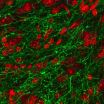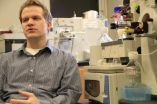(Press-News.org) Two leading ecologists say a rapid proliferation of roads across the planet is causing irreparable damage to nature, but properly planned roads could actually help the environment.
"Loggers, miners and other road builders are putting roads almost everywhere, including places they simply shouldn't go, such as wilderness areas," said Professor Andrew Balmford of the University of Cambridge, UK. "Some of these roads are causing environmental disasters."
"The current situation is largely chaos," said Professor William Laurance of James Cook University in Cairns, Australia. "Roads are going almost everywhere and often open a Pandora's Box of environmental problems."
"Just look at the Amazon rainforest," said Laurance. "Over 95 percent of all forest destruction and wildfires occur within 10 kilometers of roads, and there's now 100,000 kilometers of roads crisscrossing the Amazon."
But the researchers say it doesn't have to be like this. "Roads are like real estate," said Laurance. "It's 'location, location, location'. In the right places, roads can actually help protect nature."
The secret, say the scientists, is to plan roads carefully, keeping them out of wilderness areas and concentrating them in areas that are best-suited for farming and development.
"In such areas," said Balmford, "roads can improve farming, making it much easier to move crops to market and import fertilizers. This can increase farm profits, improve the livelihoods of rural residents, enhance food security and draw migrants away from vulnerable wilderness areas."
This will be crucial in the future, say the scientists, given that global farming production will need to double in the coming decades to feed up to 10 billion people.
Writing in the journal Nature, the researchers say a global mapping program is needed, to advise on where to put roads, where to avoid new roads and where to close down existing roads that are causing severe environmental damage.
"It's all about being proactive," said Laurance. "Ultimately, local decision-makers will decide where to put roads. But by working together, development experts, agriculturalists and ecologists could provide badly needed guidelines on where to build good roads rather than bad roads."
###
For additional information please contact:
Genevieve Maul, Office of Communications
University of Cambridge
Tel: 44-0-1223-332300
Mob: 44-0-7774-017464
Email: Genevieve.maul@admin.cam.ac.uk
**Please note that Professor Balmford will have limited email access from Tuesday 19 March – Thursday 21 March**
Andrew Balmford, Professor of Conservation Science
University of Cambridge, UK
Email: a.balmford@zoo.cam.ac.uk
Phone: 44-0-1223-331770
William Laurance, Distinguished Research Professor
James Cook University, Cairns, Queensland, Australia
Email: bill.laurance@jcu.edu.au (monitored continuously)
Phone: 61-7-4038-1518
Notes to editors:
Reference (available upon request)
Laurance, W. F. and Balmford, A. A global plan for road building. Nature 495:308-309 (2013). END
Roads could help rather than harm the environment, say experts
2013-03-21
ELSE PRESS RELEASES FROM THIS DATE:
Older grandfathers pass on autism risk through generations
2013-03-21
Men who have children at older ages are more likely to have grandchildren with autism compared to younger grandfathers, according to new research. This is the first time that research has shown that risk factors for autism may accumulate over generations.
The study led by King's College London's Institute of Psychiatry, Karolinska Institutet in Sweden and the Queensland Brain Institute in Australia is published today in JAMA Psychiatry.
By using Swedish national registers, researchers identified 5,936 individuals with autism and 30,923 healthy controls born in Sweden ...
UNC study shows how 2 brain areas interact to trigger divergent emotional behaviors
2013-03-21
(Embargoed) CHAPEL HILL, N.C. – New research from the University of North Carolina School of Medicine for the first time explains exactly how two brain regions interact to promote emotionally motivated behaviors associated with anxiety and reward.
The findings could lead to new mental health therapies for disorders such as addiction, anxiety, and depression. A report of the research was published online by the journal, Nature, on March 20, 2013.
Located deep in the brain's temporal lobe are tightly packed clusters of brain cells in the almond shaped amygdala that are ...
Study reveals potential immune benefits of vitamin D supplements in healthy individuals
2013-03-21
(Boston) – Research from Boston University School of Medicine (BUSM) shows that improving vitamin D status by increasing its level in the blood could have a number of non-skeletal health benefits. The study, published online in PLOS ONE, reveals for the first time that improvement in the vitamin D status of healthy adults significantly impacts genes involved with a number of biologic pathways associated with cancer, cardiovascular disease (CVD), infectious diseases and autoimmune diseases. While previous studies have shown that vitamin D deficiency is associated with an ...
Biodiversity does not reduce transmission of disease from animals to humans
2013-03-21
More than three quarters of new, emerging or re-emerging human diseases are caused by pathogens from animals, according to the World Health Organization.
But a widely accepted theory of risk reduction for these pathogens – one of the most important ideas in disease ecology – is likely wrong, according to a new study co-authored by Stanford Woods Institute for the Environment Senior Fellow James Holland Jones and former Woods-affiliated ecologist Dan Salkeld.
The dilution effect theorizes that disease risk for humans decreases as the variety of species in an area increases. ...
Sustainable Development Goals must sustain people and planet
2013-03-21
In the wake of last week's meetings at the UN on the definition of the Sustainable Development Goals (SDGs), a group of international scientists have published a call in the journal Nature today, arguing for a set of six SDGs that link poverty eradication to protection of Earth's life support. The researchers argue that in the face of increasing pressure on the planet's ability to support life, adherence to out-dated definitions of sustainable development threaten to reverse progress made in developing countries over past decades.
Ending poverty and safeguarding Earth's ...
Baffling blood problem explained
2013-03-21
In the early 1950's, a 66-year-old woman, sick with colon cancer, received a blood transfusion. Then, unexpectedly, she suffered a severe rejection of the transfused blood. Reporting on her case, the French medical journal Revue D'Hématologie identified her as, simply, "Patient Vel."
After a previous transfusion, it turns out, Mrs. Vel had developed a potent antibody against some unknown molecule found on the red blood cells of most people in the world—but not found on her own red blood cells.
But what was this molecule? Nobody could find it. A blood mystery began, ...
Media coverage of mass shootings contributes to negative attitudes towards mental illness
2013-03-21
News stories about mass shootings involving a shooter with mental illness heighten readers' negative attitudes toward persons with serious mental illness, according to a new report by the Johns Hopkins Bloomberg School of Public Health. The researchers also examined how such news stories impact support for policies to reduce gun violence. Compared to study respondents who did not read a story about a mass shooting, reading a news article describing a mass shooting raised readers' support for both gun restrictions for persons with serious mental illness, and for a ban on ...
Teen mentors inspire healthier choices in younger children
2013-03-21
COLUMBUS, Ohio – An obesity intervention taught by teen mentors in Appalachian elementary schools resulted in weight loss, lower blood pressure and healthy lifestyle changes among the younger students learning the curriculum, according to a new study.
In contrast, children taught the same lessons by adults in a traditional classroom saw no changes in their health outcomes.
The results of the eight-week clinical trial conducted by Ohio State University researchers suggest that school systems could consider using teen mentors to instruct younger children in select health-related ...
Charges for emergency room visits often based on incorrect assumptions
2013-03-21
Visits to the ER are not always for true medical emergencies – and some policymakers have been fighting the problem by denying or limiting payments if the patient's diagnosis upon discharge is for "nonemergency" conditions.
Now a new UC San Francisco study challenges that framework by showing that criteria used as a basis to determine the appropriateness of an emergency room visit and to deny payment is inherently flawed. The study analyzed nearly 35,000 visits to hospital emergency departments around the country.
The research is published online today in JAMA (Journal ...
NIH-supported researchers identify new class of malaria compounds
2013-03-21
A group of researchers from 16 institutions around the world has identified a new class of anti-malarial compounds that target multiple stages of the malaria parasite's life cycle (http://www.niaid.nih.gov/topics/malaria/pages/lifecycle.aspx). These compounds could potentially be developed into drugs that treat and prevent malaria infection. Known as 4-(1H)-quinolone-3-diarylethers, the candidate anti-malarials are derived from a compound called endochin that effectively treats malaria in birds. When tested in the laboratory and in mice, the compounds demonstrated strong ...


